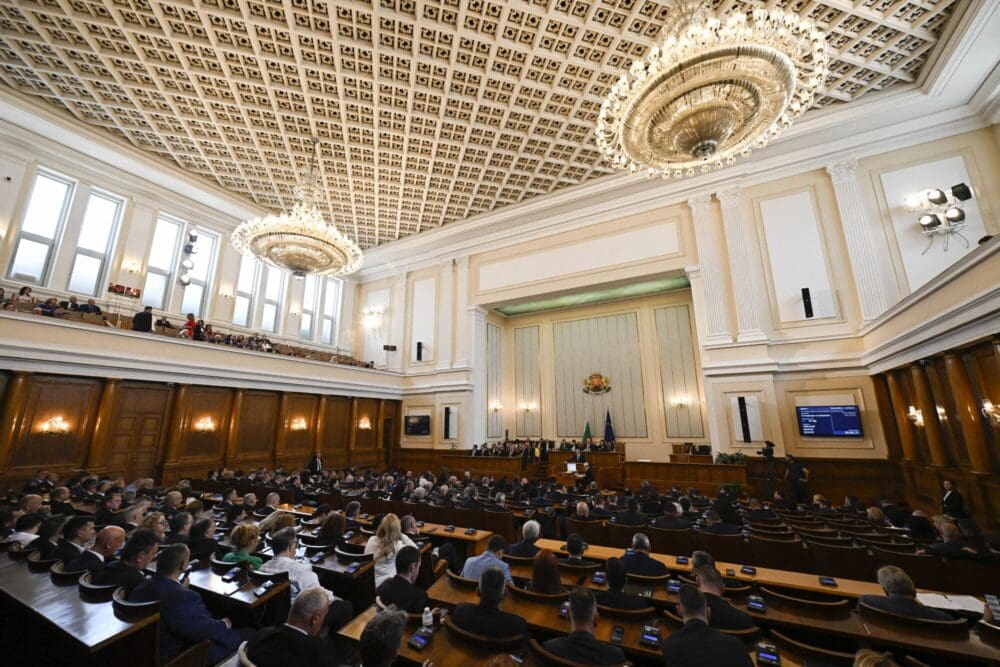
The Bulgarian Parliament
Nikolay DOYCHINOV / AFP
The Bulgarian parliament has modified the country’s education law, banning the promotion of LGBT propaganda in schools.
The amendment to the law passed by a large majority, with 159 votes in favour, 22 against and 12 abstentions—meaning the changes had a strong cross-party backing.
The law now bans the “propaganda, promotion or incitement in any way, directly or indirectly, in the education system of ideas and views related to non-traditional sexual orientation and/or gender identity other than the biological one.”
Many of the lawmakers cited foreign-authored textbooks on sexual education for children as the instigators for the amendment of the education law.
Right-wing nationalist party Revival said that promoting socio-cultural models of non-traditional sexual orientation near schools does not align with Bulgarian tradition. Petar Nikolov of the centre-right GERB party said he rejects propaganda that imposes alternative sexual orientation on children, and he also highlighted Bulgaria’s “Christian essence.”
Yordan Tsonev from the liberal-centrist DPS party—which represents the interests of ethnic minority Turks—emphasised the importance of children’s upbringing according to binary gender principles. Former Socialist Party leader Kornelia Ninova said gender ideology was “creeping into and taking over Bulgarian schools.”
The main Europhile party, PP–DB, which has been accused by its opponents of serving the interests of the U.S. Democrat administration, rejected the amendment. MP Elisaveta Belobradova argued that the law represents “cheap populism” rather than addressing any real issues within the educational system.
Pro-LGBT protesters took to the streets on Wednesday, complaining that the law “breaches basic human rights,” and calling the move by the parliament a “witch hunt” against LGBT people.
The modification of the law received strong backing from across the political spectrum despite the political turmoil that has engulfed Bulgaria for the past few years. The Balkan EU member state is facing its seventh parliamentary election in three-and-a-half years in October, as left-wing and conservative forces consecutively fail to gain majorities in parliament. When they have succeeded in forming coalition governments, they have quickly fallen apart.
Bulgaria’s education law amendment resembles another EU country’s, Hungary’s “Child Protection Act” which was adopted three years ago, and prohibits or heavily restricts the promotion of homosexuality and gender transition in schools and media.
Bulgaria does not recognise same-sex marriage, and also refuses to ratify the Istanbul Convention on preventing and combating violence against women, because it promotes gender ideology—the reason why other Central European states, such as Hungary and Slovakia have also not ratified it.
